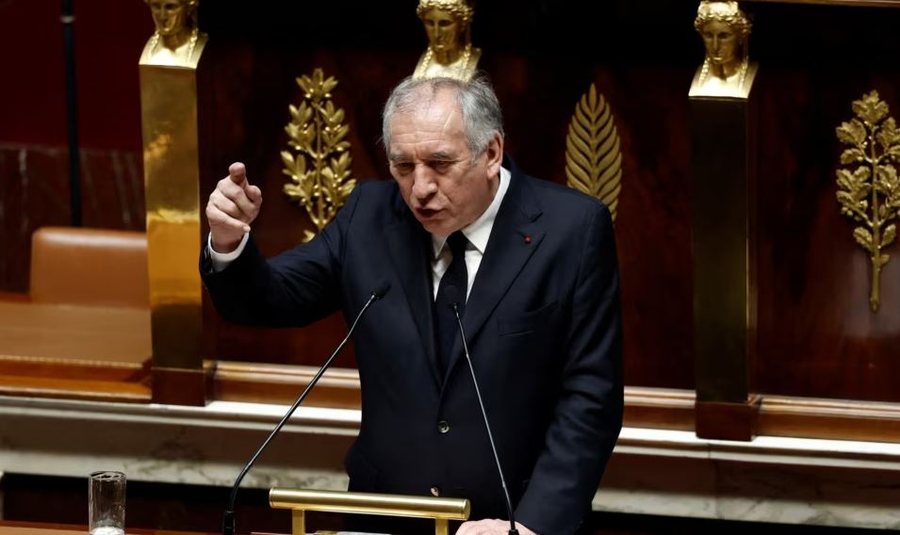
French Prime Minister François Bayrou announced on Tuesday that he will renegotiate a plan to raise the retirement age from 62 to 65, a move seen as important to ensuring stability for his minority government.
In his first speech before lawmakers in the National Assembly, Prime Minister Bayrou said he "has decided to reopen this issue."
He vowed to seek "a new path for reform, without any taboos even when it comes to the issue of retirement age," as long as the finances for the change are guaranteed.
President Emmanuel Macron's plan to raise the retirement age sparked mass protests from January to June 2023.
What is Prime Minister Bayrou proposing?
The Prime Minister must urgently approve the 2025 budget. After the fall of the previous government, an emergency law was passed to enable the government to collect taxes starting January 1, paying for basic expenses to avoid a government shutdown.
However, only a regular budget can help reduce France's budget deficit and enable key spending such as taking protective measures that are necessary as a result of the war in Ukraine.
Prime Minister Bayrou has also underlined the need for France and the European Union to continue to remain strong following comments recently made by US President-elect Donald Trump.
"The President-elect of the United States himself, in an unprecedented manner, has made threats to annex sovereign territories: Greenland, the Panama Canal, and Canada," the prime minister said, expressing regret for these comments.
Financial markets, credit rating agencies and the European Commission are pressuring France to adhere to the bloc's rules to limit debt and prevent borrowing costs from spiraling out of control, which would endanger the eurozone's economies.
France's deficit is expected to reach 6% of gross domestic product in 2024. The prime minister said on Tuesday that the government aims to keep the deficit at 5.4% with the aim of reducing it to 3% by 2029, in line with EU rules.
"Major spending cuts will be proposed," he said without giving specific details.
Why are pension reform talks of key importance?
The pension law reform, which was approved in April 2023, despite massive protests, has been gradually implemented.
The Socialists asked Prime Minister Bayrou to announce the "suspension" of the reform that increases the retirement age and to introduce special measures for those with long careers and certain professions that are considered difficult jobs.
Prime Minister Bayrou did not make this decision on Tuesday, yet his proposal to renegotiate seems like a hand extended to the left.
The new prime minister wants to secure a pact with the Socialists to avoid attacks, so that they will not support any future moves to overthrow the new government.
He suggested that the age of 64, which was the most criticized change, could be lowered depending on the outcome of negotiations.
"We cannot worsen the financial balance" of the pension system, Prime Minister Bayrou insisted.
On the other side of the political spectrum, conservatives have warned against suspending changes to pensions.
"If we were to cancel the pension reform, the cost would be 3.4 billion euros in 2025 and almost 16 billion in 2032," said Senate President Gérard Larcher, a conservative.
Could the government fall again?
Prime Minister Bayrou's cabinet relies on a fragile agreement between President Macron's centrist allies and the conservatives of the Republican party, who, even when united, do not have a parliamentary majority.
The previous government was in power for only three months before being ousted by opposition lawmakers from both the left and far right amid a budget dispute.
This time, the Socialists said they were open to talks with Prime Minister Bayrou while remaining in opposition.
The leader of the Socialist group in the National Assembly, Boris Vallaud, said his party accepted the offer to reopen negotiations on changes to the pension law. However, he warned that the aim was still to withdraw the reform and therefore lower the retirement age to 62.
Meanwhile, the possibility of another vote of no confidence is still a possibility.
The powerful left-wing party 'France Unsurrendered' refused to enter into talks with the government and announced that it would present a motion of no confidence.
"The sooner you leave, the better," Mathilde Panot, the leader of the left-wing "France Unsurrendered" lawmaker group, told Prime Minister Bayrou.
Is the far right still powerful?
Far-right leader Marine Le Pen, President Macron's fiercest rival, played a significant role in bringing down the previous government.
Prime Minister Bayrou consulted her when forming the new government, and Ms. Le Pen remains a powerful force. Her National Rally party has the largest group as a single political entity without a coalition in the National Assembly, the powerful lower house of France's parliament.
In recent days, Prime Minister Bayrou's government has tried to sideline Ms. Le Pen by negotiating instead with the Socialists, Greens, and Communists on budget issues.
National Union lawmaker Jean-Philippe Tanguy said the “red lines” remain the same. The party said it would oppose any budget that would increase the cost of medical care, provide more health care for immigrants who are in the country illegally and impose new taxes on businesses.
"We say to the French: wait, we're getting there," said Mr. Tanguy.
But Ms Le Pen will face further problems in the coming months after a court ruling in March over alleged illegal party financing could bar her from running for president . (A2 Televizion)











